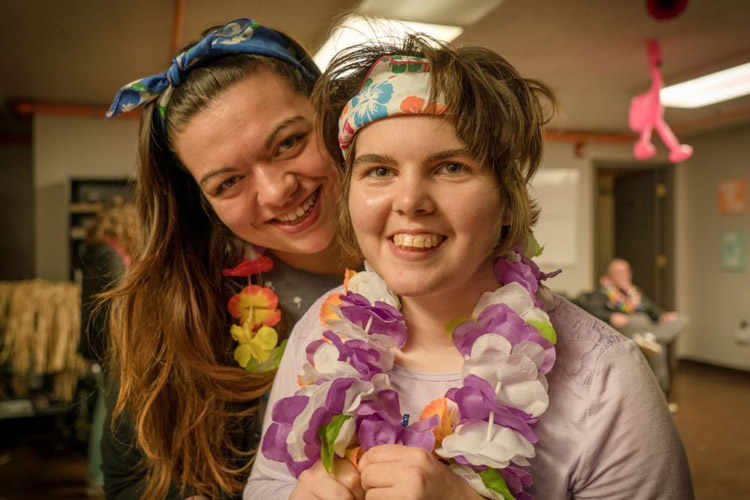So much of our success in life depends on our behavior and the choices we make – and the choices we don’t make. As a training instructor with AbleLight, much of my role is helping people with intellectual and developmental disabilities recognize and act on this.
First and foremost, I teach that everyone is in control of their own behavior. Nobody gets to make other people behave in a certain way. Second, everyone controls how they react to others’ behavior.
When you’re in control, good things happen.
We all learn from young on what happens when you make good or bad behavioral choices. Many choices are minor. We learn to squeeze the toothpaste from the middle of the tube because then we are rewarded with more toothpaste. We discover putting the milk carton back in the fridge with only one sip of milk causes problems – instead, we finish the milk!
On the more serious side, we learn not to put our hand in a pot of scalding water because the result would be burning pain. Or we find out walking while using a smartphone could hurt someone.
Everyone is in control of their own behavior. Nobody gets to make other people behave in a certain way.
John Sheehan, training instructor at AbleLight
As we become young adults, this ability to tell good behavior from bad behavior becomes more important, because the stakes are so much higher. We have the opportunity to go to class so that we can graduate and move on. We can take a job so that we can make money and afford things we want. Within each of these activities are smaller decisions that each day add up, good and bad. If we mess up, it could mean losing the opportunity to attend school or earn a paycheck, and not getting to achieve what we want.
That’s where I try to help.
Ask yourself these things
I work with college students with autism and one of the things they do, which we can all learn from, is watch people closely and study what they are doing. We can learn from others what happens when people do things, figure out what is “normal behavior,” and copy that in our own lives. It does not always work, but it can often be helpful.
In everyday life, everybody gets frustrated. One thing I suggest is to take a step back for a minute and ask, based on what you know: “Am I making a good choice, or a bad choice with my behavior?” We can consider what the possible outcomes will be, good and bad. We can think about how other people might react to it as well.
I recommend stopping and asking what a person I trust would do in a given situation. Think: “Would my mom scream to get attention? Would my best friend throw things at people to get them to stop?”
Here’s another tip – know what makes you happy and what makes you stressed. Try to understand yourself and what makes it more likely you will have a problem with behavior. For example, crowds often stress me out, so I try to avoid going into crowded places. We want to do the best we can and sometimes that means making sure our surroundings are right for us to be successful. If you do not like loud sounds, going to a dance club with loud music is probably a bad idea.
Help other people
While everyone controls their behavior, they may not fully grasp the reaction they will get. An example of this might be someone who hugs everybody. That behavior is not socially acceptable and could lead to bad results, even though it may be well intentioned. In this case, it’s possible to try and change their behavior by initiating a handshake or offering a fist bump. It may or may not work – again we don’t control other people’s behavior – but is worth the effort.
At the end of the day, know that everybody makes mistakes. We are all human. So if you make one, do not beat yourself up over it. Learn from your mistake and move on to make a better choice next time!
Want to learn more about this topic? Check out this blog post, or see AbleLight’s Behavior Supports page for more information.

